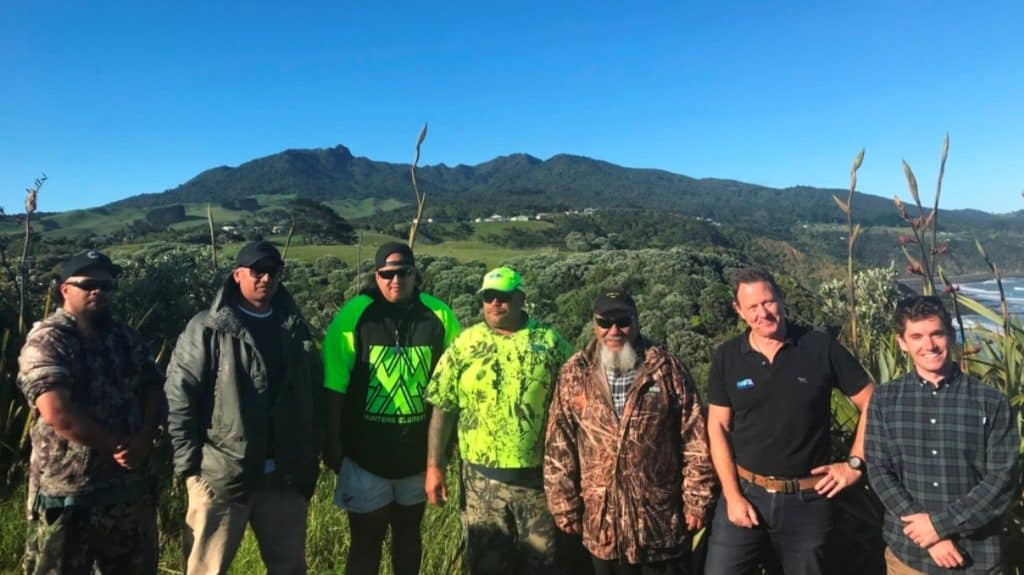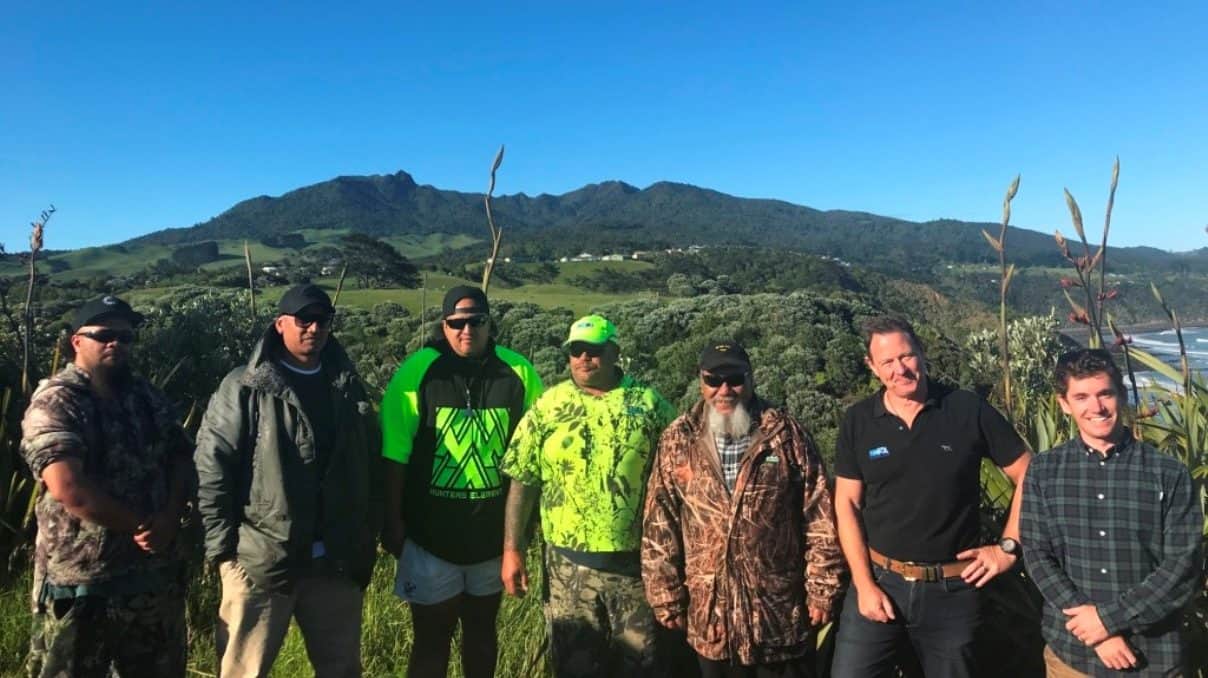Waikato Regional Council news
A Raglan team has become an expert in pest control, keeping on top of possums on their own property and that of other landowners.
Te Iwi Tahi O Kairoi was set up after an initial consultation with hapū about upcoming Possum Priority ControlArea (PPCA) work on their land within the Mt Karioi North block. All landowners or occupiers within a PPCA are required to allow Waikato Regional Council staff and contractors to monitor and control possums on their property in order to protect and enhance biodiversity, enhance farm production and maintain the gains of previous or existing possum control.
Council contractor and EcoFX owner Kevin Christie says when approached, the hapū expressed a desire to do the pest control themselves, thereby preventing any issues with contractors unknowingly accessing tapu sites and tocreate job opportunities for their people.
“This is special to this area. Not only did we help them to control their own land, but they have also ended up subcontracting to us to do the entire block and helping us work on other priority possum control areas across the region.
“It’s given these guys training and employment, and a load of new skills and experience for future work opportunities.”
Kevin and his team trained up the Raglan crew in health and safety and they become certified in the use of controlled substances, LUVs, 4WDs, motorcycles, quad bikes and first aid.
“When we started, they thought they knew something about pest control … they knew very little in the beginning but now they are experts.
“The boys working their own land is the best outcome, but now they can go and do a contract anywhere in New Zealand and have been working alongside my team.”
Te Iwi Tahi O Kairoi team leader Sandy Hounuku says it was a no brainer to want to do the work themselves.

“We have been doing pest control on our land since about 2006, anyway. We could see the utter devastation that the possums were doing, and we wanted to try and do some work ourselves to reduce the amount of 1080 being dropped on the land.
“A lot of it starts at the marae; some of the whanau don’t want specific areas interfered with and we stay away from these areas of significance without getting into issues with process yet still getting a good catch rate.”
Like the EcoFX contractors, Te Iwi Tahi O Kairoi had a performance-based target of a 5 per cent residual trap catch (RTC) or less to meet. The RTC is the number of possums caught per 100 traps using a standard trapping protocol. If native plants and animals are to survive and flourish, research shows the RTC needs to be below 5 per cent.
For the 675ha Mt Karioi North block, the team reduced the catch rate down from about 8.97 per cent to 2.12 per cent within six weeks during the winter season.
“In my time, I’ve seen the mountain go down and I’ve seen it come back,” says Sandy, who has lived in Raglan all his life. “The health of our maunga is up to every landowner. For me, being able to have our field team roll out of bed and work your own land is pretty cool.”

